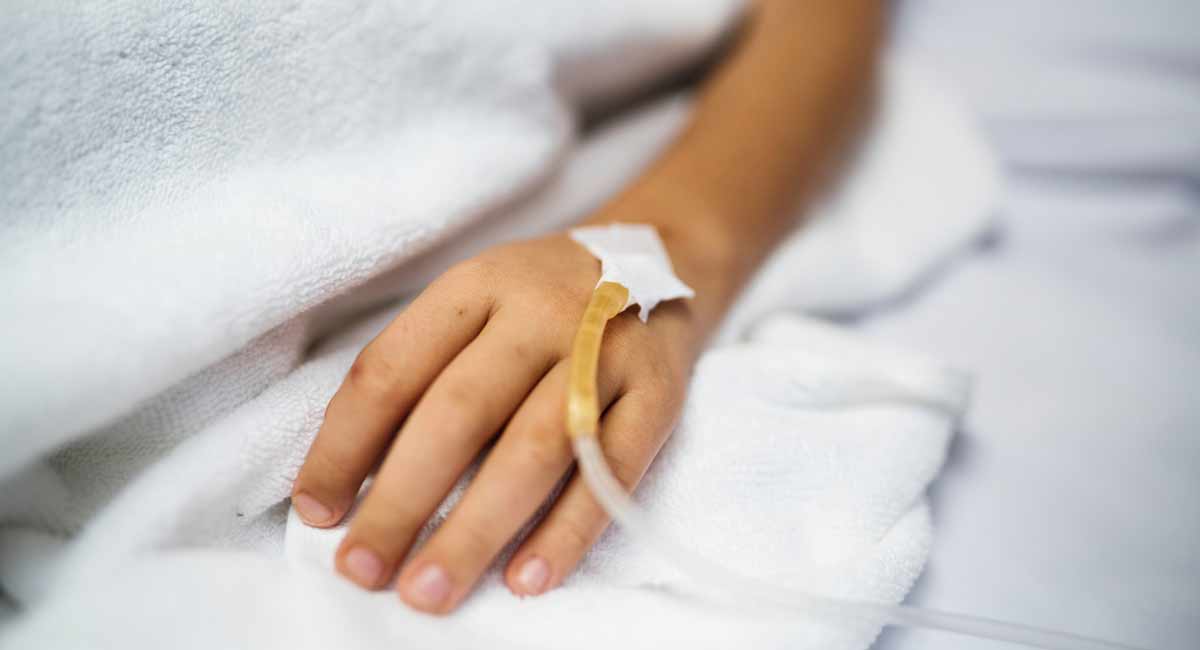The United Kingdom may not have legalized assisted suicide yet, but a new court ruling indicates the country may have skipped right ahead to legalized murder instead. Currently, passive euthanasia is legal in the United Kingdom; this is when a person is killed by removing treatment and allowing them to die. This is essentially how two little boys — Alfie Evans and Charlie Gard — were killed. But until recently, doctors and families needed a court ruling allowing the person to die. Now, that will no longer be necessary; instead, if doctors and family members agree, a person in a vegetative state can be removed from life support and killed, even if they never previously expressed a wish for euthanasia.
People permitted to be killed under the new ruling are not necessarily reliant on ventilators; they do, however, need water and nutrition supplied to them through a feeding tube, which can now be removed, allowing the patient to be dehydrated and starved to death… a slow, cruel way to die. “Having looked at the issue in its wider context as well as from a narrower legal perspective, I do not consider that it has been established that the common law or the ECHR (European Convention on Human Rights), in combination or separately, give rise to the mandatory requirement to involve the court to decide upon the best interests of every patient,” said Lady Black, one of the five Supreme Court justices, who ruled unanimously.
Care Not Killing, an anti-euthanasia group, reacted to the ruling in a statement slamming the decision:
The ruling will effect up to 24,000 patients with permanent vegetative state (PVS) and minimally conscious state (MCS), meaning they can now be effectively starved and dehydrated to death if the medical staff and relatives agree that this is in their ‘best interests’.
People with PVS (awake but not aware) and MCS (awake but only intermittently or partially aware) can breathe without ventilators, but need to have food and fluids by tube (clinically assisted nutrition and hydration or CANH).
These patients are not imminently dying and with good care can live for many years. Some may even regain awareness. But if CANH is withdrawn, then they will die from dehydration and starvation within two or three weeks.
READ: Netherlands doctor forcibly put elderly woman to death as family held her down
It’s already been well established, thanks to the Alfie Evans and Charlie Gard cases, that the medical community in the United Kingdom is not always primarily concerned with providing the best care for their patients — especially not severely disabled patients or those given little chance of recovery. This was likewise seen with 12-year-old Nancy Fitzmaurice, a girl who was not terminally ill or dying, but merely disabled. But her mother and her doctors felt that her life was not worth living anymore, so her feeding tube was withdrawn, and over a period of two weeks, Nancy slowly starved to death.
Deciding that someone’s life is not worth living anymore is a highly subjective opinion, and it can lead to people with disabilities being killed before they otherwise would have died, a problem already endemic in the United Kingdom. For people without disabilities, the idea of a family withdrawing life support without the person’s prior consent is rife with abuse; just imagine an elderly patient’s family who is ready to inherit the estate and wishes to hasten the patient’s death. Those who stand to potentially benefit financially from a patient’s death will be the same people deciding life or death for that patient. One can easily see the ethical problems with this.
This is even more disturbing knowing that researchers were recently able to successfully restore brain function in a man who had spent 15 years in a vegetative state, and other new research shows that up to 20% of people living in a vegetative state are actually aware of everything happening around them, and experience the horrors and abuses visited on them — things like being starved to death over a period of two weeks.







